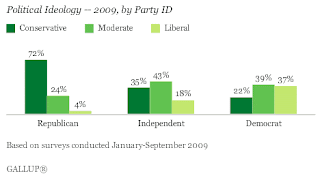Another Boston election cycle is over and both the media and activist community do what they do best: misunderstand the obvious.
Given the
abysmally low turnout, the race was Flaherty's to lose. And he lost.
As I predicted,
here,
here,
here, and
here, the alliance between Michael Flaherty and Sam Yoon was doomed to fail because the alliance was much less than the sum of its parts. This is unfortunate in a perverse sort of way because Boston needs a viable alternative to the current Administration. The Dog is not averse to tilting at the occasional windmill, and if either Flaherty or Yoon had shown any indication of being principled reformers, he would have been the first to hold their signs during rush hour.
On the plus sign, if I hadn't been so annoyed by the sheer incompetence of both the challengers and the media coverage thereof, I probably wouldn't have started blogging. (That's plus for me, dear reader, not you.)
At any rate this municipal election cycle was a textbook case study of
political incompetence and
journalistic misfeasance. The media coverage of the race was so crappy that to call it incompetent would be a complement. The
Boston Globe in particular went through a consistent period of self-deluded Duh moments masquerading as political coverage. Menino has a short temper? Menino likes to micro-manage? Menino runs a closed Administration? Spare me. He's been that way before he was even a District City Councillor.
And everybody with an IQ above single digits knows it.
What the media never covered is the fact that the Mayor's lack of articulation disguises arguably the best field brain of his generation of Democrats. The rise of the "accidental Mayor" was never accidental; he had a comprehensive City-wide organization (put together, I might add, in plain sight) a good year before the 1993 election. The only problem was and is the fact that the Mayor's electoral virtues are administrative vices.
The opinions of good-government progressives notwithstanding, campaigns aren't democracies, nor are they organized to further the common good.
Campaigns are about obtaining power. Thus, a wining campaign manager is always aware of the shifting correlations of power. The demands of the business thus present the danger that the inherent dispassion necessary to win can morph into cynicism.
In a functioning civic culture this danger is checked by informed and active citizens (and their elected representatives) at the local level. But Boston's civic culture's been dysfunctional for decades,
aided and abetted by an equally dysfunctional media. There were (and are) no checks and balances in the system, and only a few at the neighborhood level, conspicuously the Dominican community and the West Roxbury neighborhood of the city. Both communities are organized as civic units across class and ideological boundaries; hence Menino is always attentive to their needs.
The City Council's power to limit Mayoral abuse by cutting the city budget is unexercised. Flaherty's accusations during the campaign were if anything understated.
The problem was that Flaherty never did squat to address those issues in nine years on the Council.
Yoon not only did nothing of substance on the Council; his reluctance to dirty his hands with constituent service work made him less than popular with his constituents. Yoon's alliance with progressives ignored the fact that progressives are not seen as assets in black, Latino, and working-class white communities. In the case of Boston's Dominican community, cited above, there has been a decade-long fight against white Jamaica Plain activists over developmental issues. In Boston's black communities there are similar battles are fought. (The difference being that the better-organized Dominicans win their fights.) Coupled with the
profoundly incompetent advice he got from his consultatant, Yoon actively repelled those the media thought were his core supporters (Menino won Chinatown with twice Flaherty's vote.)
Hence, from where the Dog sits, there was never any doubt about the outcome.
The problem is that principled candidates, running competent campaigns could have easily won.


